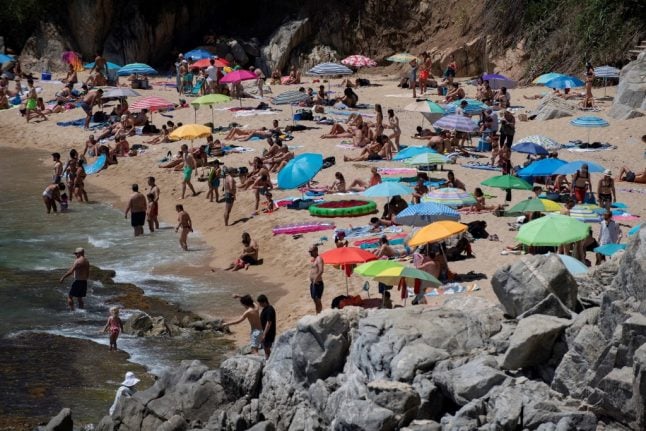As the summer holidays began and temperatures soared across the country, crowds headed to the beaches on the Costa del Sol and other parts of the southern region.
Some 29 beaches had to be closed in Malaga after councils decided the number of sunbathers had reached limits set to avoid the spread of COVID-19.
The Junta de Andalusia regional government said in Cadiz 14 beaches were also closed because of too many people.
To the west of the region in Huelva nine beaches were shut down, while over in the east of Andalusia, two beaches were closed in Almeria and one in Granada.
In some cases the beaches were only closed for a short time but in others they had to be closed for the day owing to the large number of visitors.
In Malaga, beaches in Baños del Carmen and the Astilleros Nereo were shut then reopened from 3pm, reported the Diario Sur newspaper.
Twenty extra staff have been employed by Malaga council to patrol the beaches to ensure holidaymakers are observing health regulations and social distancing advice.
In Benalmadena, a resort near Malaga which is popular with British tourists, the beaches are closed for a time at 12.30pm and 4.30pm when there are the highest number of visitors.



 Please whitelist us to continue reading.
Please whitelist us to continue reading.
Member comments